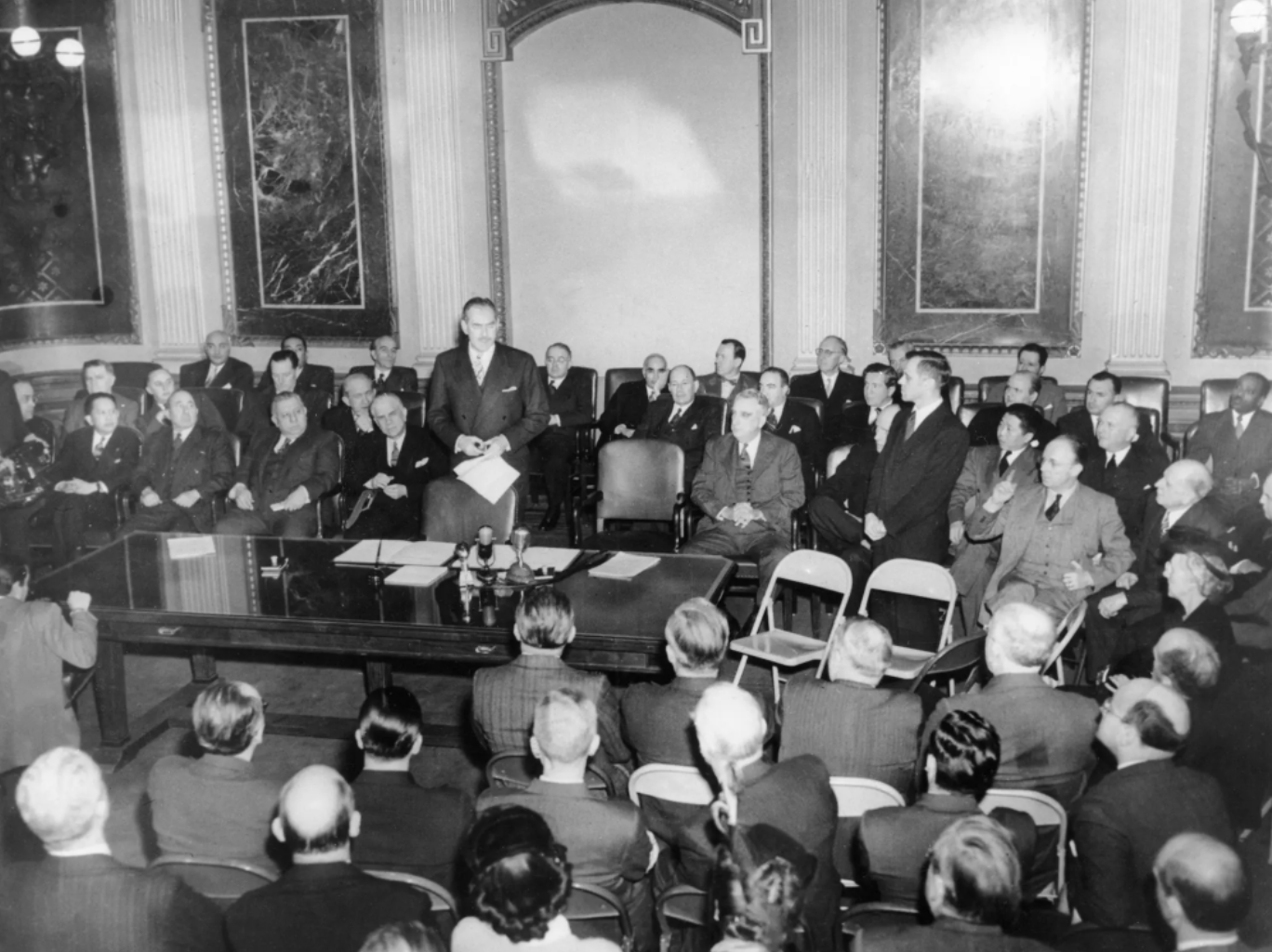The Bretton Woods Agreements, which regulated the functioning of the world financial system for more than three decades and laid the foundations for the birth and expansion of development banks, occurred at a critical moment for mankind.
It was 1944 and the planet was still in the midst of World War II, which stemmed from the major issues that had not been resolved during World War I, and the aftermath of the Great Depression was still being felt almost three lustrums later.
In addition, the poles of power and geopolitical dynamics that would determine the course of humanity for the next 45 years were beginning to take shape. A system was needed that would rise above these differences.
For this reason, representatives of 44 countries met between July 1 and 22 of that year in Bretton Woods (New Hampshire, USA) to lay the foundations for international cooperation that would guarantee growth and cooperation among the participating nations.
The system had its flaws and was subject to severe and well-founded criticism from academics and governments. However, more than 190 nations are still members of the two main institutions derived from the agreement: the World Bank and the International Monetary Fund.
Today, the world is experiencing a new “Bretton Woods moment”. The challenge of climate change, the Covid-19 pandemic and its severe economic impact, and the readjustment of the global political chessboard that has already begun with the war in Ukraine put us in a similar place, but with some advantages.
The need to redefine the rules of the global financial system to make it fairer, more sustainable, and more transparent was strongly manifested during the 2008 crisis and the subsequent bailout of the affected institutions. And although some progress was made in the regulatory framework and in certain laws as a result of that crisis, the challenges we face in the future require much more.
The International Bank for Reconstruction and Development (which later became part of the World Bank) was a result of that conference. The objective of this institution, clearly stated in its name, left no doubt as to its purpose.
The rest of global development banking as we know it had its germ in that conclave and the institutions that were born out of it. Some development banks emerged as satellites of that influence, and others for the opposite reason: to distance themselves from the United States.
I said earlier that, despite the complicated situation we are facing today, the current juncture has some advantages. One of them is precisely a broad global network of development banks made up of more than 500 institutions of all kinds. Another advantage is that practically all nations are still members of the Bretton Woods institutions and participate in various multilateral organizations.
In addition to being financial institutions, development banks have become true repositories of knowledge and experience to address development challenges on all scales. They have also aligned themselves with other global priorities: climate change, human rights, and gender equality, to give just a few examples.
Aware of their capacity, and above all their role in today’s complex landscape, they have begun to provide a coordinated response to some of these issues. The Finance in Common event, the first global summit of public development banks held in Paris in 2020, is an example.
In today’s circumstances, just as 78 years ago, the world is at a crossroads that requires coordinated actions, agile and strong institutions, and cooperation mechanisms that transcend ideologies and political junctures. My call is not to revive that system, but to invoke the spirit of that conference, in which an attempt was made to forge mechanisms for collaboration among countries and to face the challenges of the times in an organized manner.
That is the challenge. And I am convinced that development banks have a vital role to play in financing and providing the knowledge we need to emerge from the current crises. It is time to convene the spirit of Bretton Woods.
Translated from Spanish by Janaína Ruviaro da Silva
Autor
Executive President of FONPLATA - Development Bank. Former Pro Secretary of the Inter-American Development Bank (IDB) and Undersecretary of Agriculture, Livestock and Fisheries of Uruguay (1999-2000).











